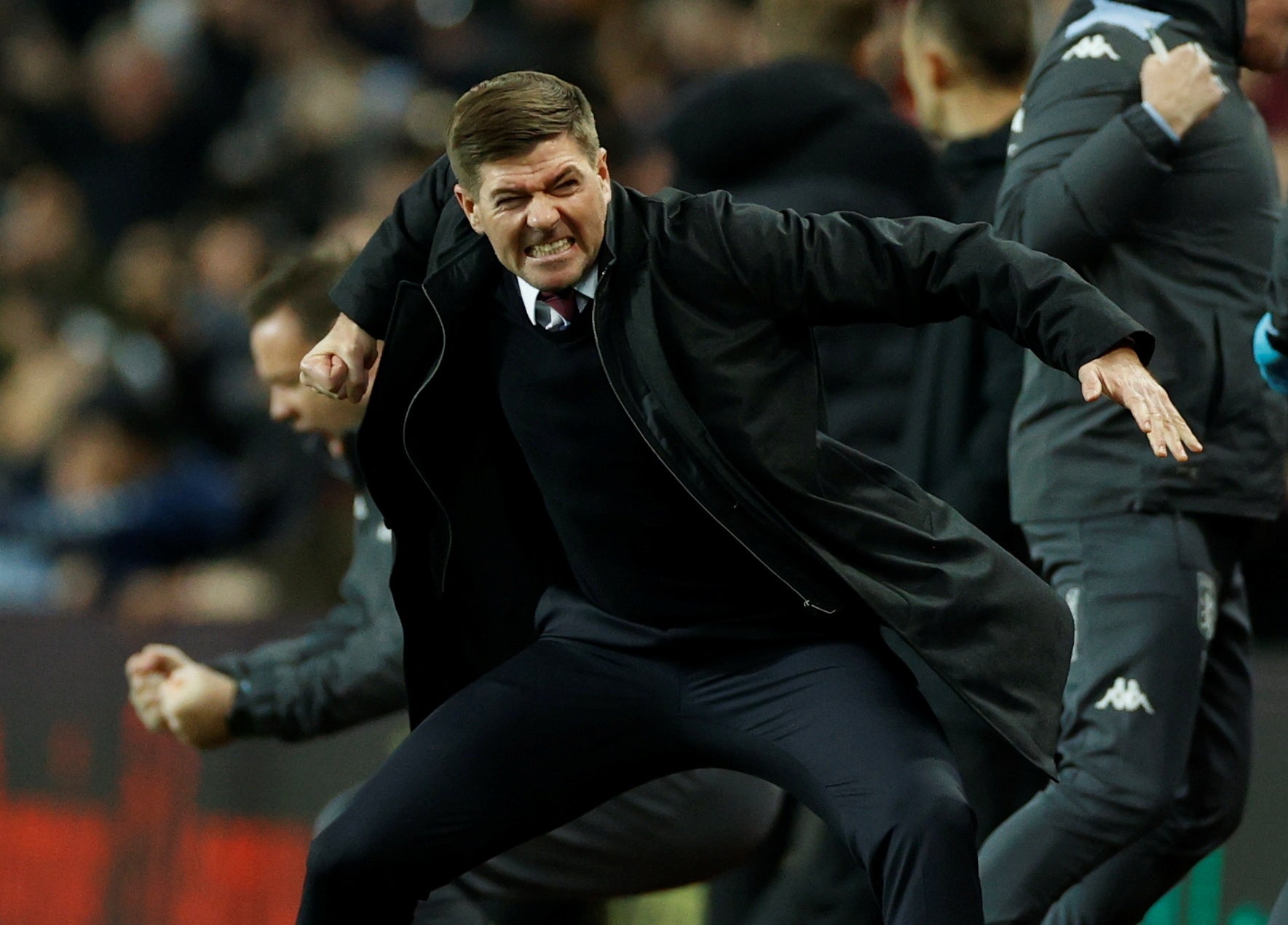Steven Gerrard employs authenticity and pragmatism to make dream start at Aston Villa
There was a clarity of thought to Gerrard’s choices in steering Villa to victory over Brighton in his first game as manager in the Premier League

Much like his major rival for the title of Liverpool’s greatest ever player, Steven Gerrard’s natural expression is not one of joy. Kenny Dalglish’s beaming grin only tended to emerge with goals; so, too, the moments Gerrard traded the furrowed brow for the unconfined, air-punching delight. There was an instant when Ollie Watkins scored the first goal of his spell at Aston Villa when he started to set off along the touchline. It was faster than a toiling Danny Ings had moved all day. It was a reminder of the explosiveness that powered Gerrard to brilliance.
“I’m excited,” he said. “I was authentic. It was not a show for anyone. I felt good and I will continue to be myself moving forward.” Authenticity long formed part of Gerrard’s appeal. By the time his playing career finished, the Premier League featured many an academy product, their rough edges smoothed off. Gerrard was one of the last great street footballers, bringing the urgency and turbulence of the estates to Anfield. He was the anachronism, the throwback to simpler times. He was the local lad who grew up to become the Champions League-winning captain, but he did it partly due to an ability to rouse people and change games with individual inspiration. He was part Phil Thompson, part Roy of the Rovers.
“You should see me in staff games, five v five, six v six,” he said. “I hate losing, I am a competitor.” Some of the finest players who go into management to do almost as attempts to extend their playing days. But the matches that matter most are not six-a-sides; Gerrard described the moments when the goals go in as his “buzz” and “medicine”; he wasn’t talking about training-ground kickarounds.
“I want to coach from the side,” he added. “I want to be visible and help them, guide them. Inside me is what was with me as a player, that will to win, that drive.” He played on emotion, which was often a strength and occasionally his undoing. Jurgen Klopp, one of his mentors, harnesses emotion brilliantly. But as Gerrard began his time at Villa with a morale-boosting victory, it may have owed more to the cool-headed thinking of Gerard Houllier and Rafa Benitez.
They were twin counter-attackers, not slaves to possession. Brighton had 63 percent of the ball at Villa Park, but it was a sterile domination that only brought two shots on target. Gerrard’s side had the thrust and penetration on the break. It was part of a gameplan. He talked of “allowing them to have the ball in certain areas of the pitch.” Villa then pounced. Gerrard joked he would ask his skipper Tyrone Mings if his goal was a shot or a cross. “He needs to be a pillar in the dressing room for me and help us drive the standard up of this football club,” said one of the most iconic captains of all. Meanwhile, there was just a hint of Gerrard himself in Watkins’ opener: the dynamism, the momentum, the finish.
Before his celebrations, Gerrard managed to sideline emotion. There was a clarity of thought to his choices. Much of Ashley Young’s football in the last five years has come as a full-back or wing-back but Gerrard brought him on in a more advanced role and he provided the pass to release Watkins. His changes may have been delayed, but they worked.
The task is to bring the same incision to his decision-making as he did with the ball at his feet. His next opponent, Patrick Vieira, has begun well at Palace but fewer of the charismatic captains become elite managers now. “I’m under no illusions about the level of coaches and standard of the teams and the players in this league,” Gerrard said. Graham Potter, an undistinguished player turned career coach with a marked philosophy, seems his antithesis, but Gerrard got the better of him. He did it his way. “I will always be authentic,” he said. Being the authentic Steven Gerrard has propelled him this far. Amid the inevitable talk of a return to Anfield, how much further can it take him?
Subscribe to Independent Premium to bookmark this article
Want to bookmark your favourite articles and stories to read or reference later? Start your Independent Premium subscription today.

Join our commenting forum
Join thought-provoking conversations, follow other Independent readers and see their replies